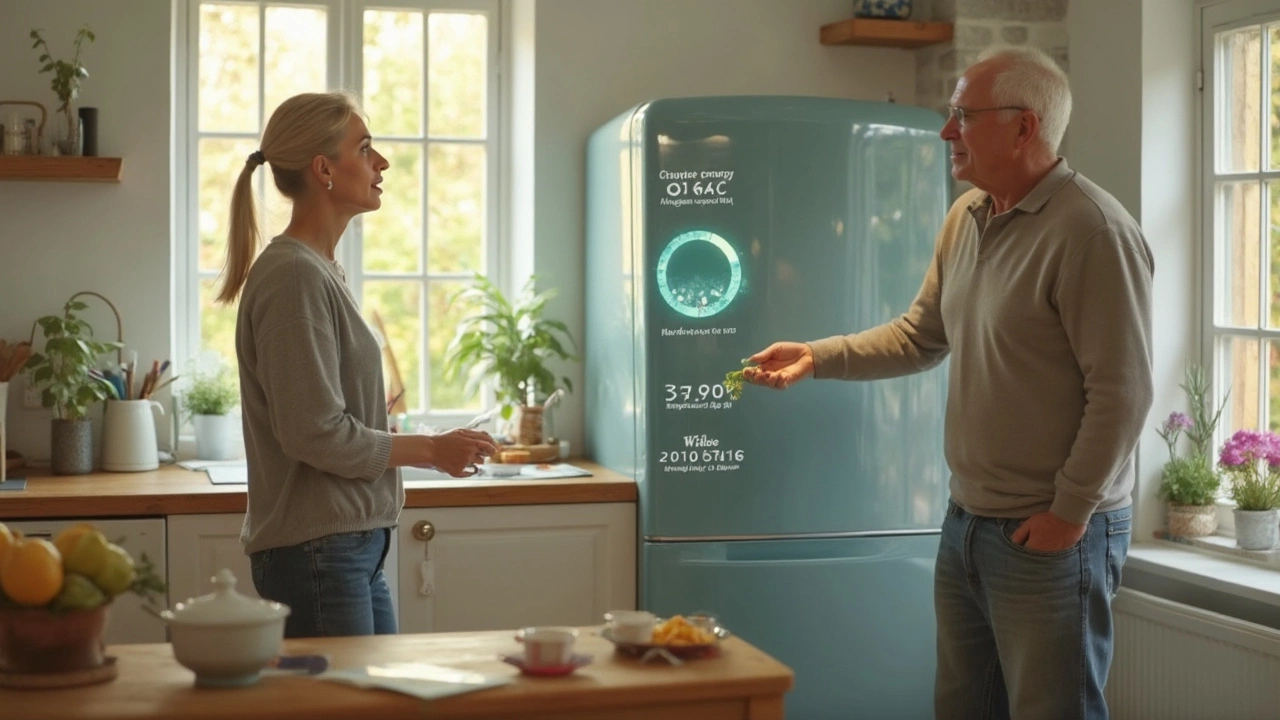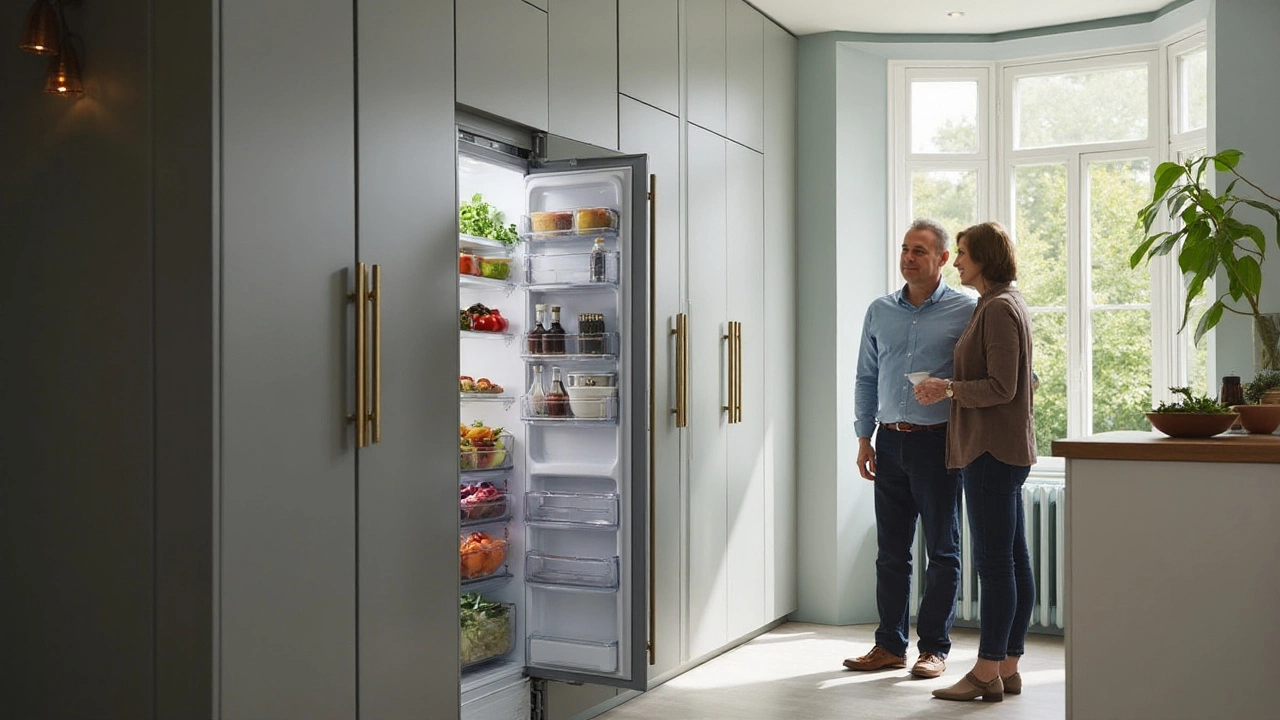Looking for a fridge that won’t blow your electricity bill? An energy‑efficient refrigerator does the job while keeping food fresh. You get lower power use, smaller carbon footprint and often a better warranty. Below you’ll find the basics you need to pick the right model without getting lost in jargon.
Every hour a fridge runs, it pulls power from the grid. In a typical UK home that adds up to hundreds of pounds a year. An Energy Star or similar rating means the unit uses far less electricity for the same cooling performance. That translates into real savings and a greener home – two wins for anyone watching the budget.
Older fridges often have thick insulation, weak compressors and outdated lighting. Newer models use inverter compressors, better seals and LED lights that cut consumption by up to 40 %. Even a modest drop in usage can pay for the higher upfront cost in just a few years.
1. Inverter compressor – these motors adjust speed based on demand, so they never run full‑blast. You’ll hear less noise and see a lower energy label.
2. Good insulation – look for a fridge with thick walls and proper door seals. A quick “paper test” (place a piece of paper between door and frame; it should stay put) can reveal leaks.
3. LED lighting – LEDs use a fraction of the power of traditional bulbs and last longer, meaning less maintenance.
4. Smart temperature controls – some fridges let you set zones or use sensors that only cool when needed. They avoid wasting energy on empty shelves.
5. Size that fits your needs – a larger fridge uses more power even if it’s efficient. Measure your household’s food storage habits and choose capacity that matches.
Don’t forget to check the annual kWh figure on the label. Compare that number across models; a fridge using 250 kWh per year will cost less than one at 350 kWh, even if the price tags look similar.
Besides the label, read user reviews for real‑world performance. Many owners report that a fridge’s energy rating stays accurate for years, but a poorly sealed door can ruin it fast.
Finally, think about placement. A fridge kept near a heat source (oven, sunlight) works harder. Give it space to breathe and keep the back a few centimeters away from the wall.
When you combine a good energy rating with proper installation and sensible use, you’ll see noticeable savings on your electricity bill. And the environment gets a boost, too.
Ready to shop? Browse the latest models, compare kWh numbers, and match features to your kitchen. An energy‑efficient fridge isn’t just a purchase; it’s a long‑term money‑saving habit.

If you’re wondering whether it’s worth swapping your old refrigerator for a new one, energy efficiency is a huge part of the answer. Newer fridges usually use less electricity, but the details can get confusing. This article breaks down how modern refrigerators stack up against older models, what really makes one fridge more efficient than another, and gives practical advice for choosing the best option for your home. Find out how much money you could actually save and what to watch for when shopping. We’ll also cover handy tips to keep your current fridge running at its best.

Want your fridge to go easier on your electricity bill? This article breaks down practical steps you can take to make your fridge use less power, from simple habits and inexpensive fixes to smart upgrades that really make a difference. Find out what actually works and what’s a waste of time. No jargon—just real tips you can put to use today. Lower your costs without sacrificing cold snacks.

Bottom freezer refrigerators offer unique advantages, yet they come with their set of drawbacks. These relate to accessibility, energy efficiency, space utilization, and convenience. The design might not suit everyone’s needs; especially those concerned with frequent bending or storage organization. Despite being energy-efficient, they present challenges that are important to address when choosing a refrigerator model.

Choosing the right refrigerator can make a significant difference not just for your kitchen but also for your energy bills and the environment. In this article, we explore the most reliable refrigerator brands in terms of energy efficiency for 2025. We'll take you through crucial aspects like energy ratings, features to look out for, tips for maintenance, and what makes a brand stand apart when it comes to dependability. By the end, you'll be well-equipped to make an informed decision tailored to your household's needs.

People often wonder if an empty fridge uses more electricity than a full one. This article delves into how the contents of a fridge affect its energy consumption, exploring scientific explanations behind temperature regulation and energy efficiency. Tips are provided for maximizing the efficiency of your fridge, explaining why organizing your fridge can indeed impact energy usage. Additionally, this article touches on common misconceptions about fridge storage and energy constants.

In today's world, the question of replacing an old refrigerator often comes down to energy efficiency, cost savings, and environmental considerations. A 17-year-old fridge might still be chugging away in the kitchen, but modernization could offer substantial benefits. From understanding energy usage to addressing potential environmental impacts, there are compelling reasons to consider an upgrade. This article explores whether investing in a new, energy-efficient fridge is a wise decision.